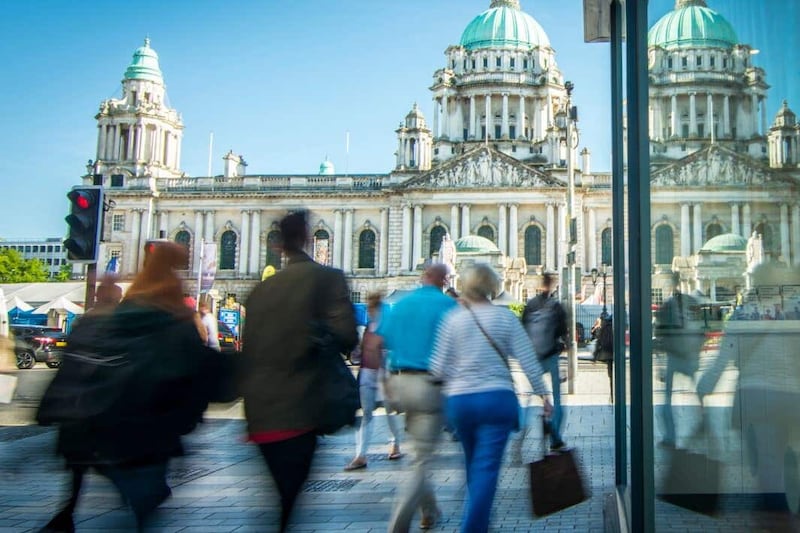Buskers or preachers who use amplification devices in Belfast city centre could be required to obtain a permit from the council under proposed new byelaws.
The public are being asked to give their view on the proposed new regulations to tackle noise nuisance in the city centre.
This would include any situation where on-street amplification is used, such as busking, preaching and outdoor performances.
Belfast city councillors previously agreed to use the powers available to the council to look at ways to tackle issues arising in recent years from loud busking, religious preaching and other activities involving the use of amplification devices or graphic imagery.
Draft byelaws, which propose the potential introduction of a permit scheme, have now been drawn up and a consultation process will last until March 4.
A Belfast City Council statement said in its proposals for a permit scheme “the council has sought to strike the balance between freedom of expression and the need to tackle the noise nuisance that can result when multiple individuals or organisations come together in busy pedestrian areas to share their views, ideas or performances, often using amplification devices”.
The statement added: “The scheme also recognises the council’s role in creating a vibrant, diverse and welcoming city centre and reflects feedback received from traders, residents and visitors on how the cumulative impact of some activities has had a negative impact on some areas.”
Under the initial proposals, anyone who wishes to use an amplification device in the city centre, including the primary retail core, would require a permit from the council.
The same rules would also apply to anyone wishing to place a stand, stall or vehicle carrying any form of promotional literature or other information on the street, regardless of its purpose.
The council said this would include displays of graphic imagery.
NEWS: Consultation opens on proposed new bye-laws for Belfast city centre – https://t.co/pKbIWuNLuQ pic.twitter.com/rhCHz57Ljt
— Belfast City Council (@belfastcc) November 27, 2023
A small fee would apply for each permit and anyone operating without a permit would face a fine of no more than £500. The fee structure for the scheme is yet to be determined.
The council is also proposing that permits would be valid for one year, in most cases, and would entitle the holder to carry out their agreed activity for a maximum of one hour in the primary retail core, or two hours in the wider city centre.
Additional conditions could also be added for permit holders, depending on the nature, extent or location of their proposed activity, and the council would be able to vary or revoke permits that have been previously issued.
After the consultation period has ended, feedback from the survey will be presented to councillors.
The final byelaws will then be brought to the Department for Communities for approval before they can be formally adopted and rolled out.







